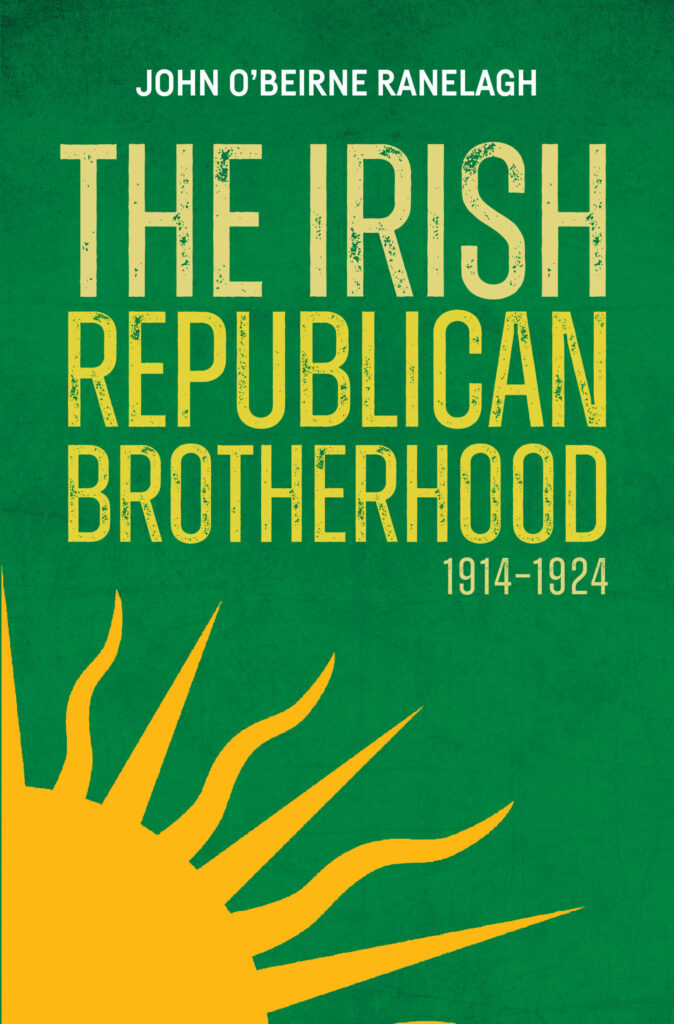Sir,—I wish to respond to Owen McGee’s review of my The Irish Republican Brotherhood 1914–1924 (Big Book, HI 33.1, Jan./Feb. 2025). Your reviewer consistently misreports and misrepresents my analysis and arguments. Nowhere, for example, do I claim ‘special insights’. Nor do I contradict myself or rely on interviews to the exclusion of documented evidence. My principal sources were in the National Library, the National Archives and UCD Archives. The Bureau of Military History and my own 105 interviews were valuable additions, but by no means my principal source—1,701 endnotes demonstrate this.
A history of any secretive organisation is separate from the chronology of conventional history and inevitably depends upon inside experience rather than public information, for example as with the CIA or KGB. The context of a secret society will always exist primarily in men’s minds rather than in contemporary letters and journals and memoranda. Dependence on police reports and other official records do not give a proper picture of the IRB, not least because it was not successfully penetrated in 1906–22, in contrast to the various IRAs in the 1970s and 1980s. Interviewing Alec McCabe, a survivor of the 1916 IRB leadership, for example, provided more information about the post-1916 IRB and Collins’s domination of the organisation than is in the written record. In many cases, actions, rather than words and documents, demonstrate decisions and strategies. The general history of the 1914–24 period is purposely not covered in any detail. ‘That is because,’ as I say in the Preface, ‘the IRB played little or no part in these events.’ My focus is on the role of the IRB during the years 1914 to 1924, establishing the extent of IRB influence and control that revolutionised Irish national movements.
At times it is impossible to understand McGee’s convoluted syntax, let alone his references to ‘resources’ and ‘tables’ needed to back up my statements that there was no ‘War of Independence’, no ‘Irish Revolution’, and that the IRB and IRA were defeated. ‘War’, ‘independence’, ‘revolution’ and ‘defeat’ are words with specific meanings readily tested by simple observation and are independent of documentation. Were the IRB and IRA defeated? Yes. By their leaders’ own admissions, they had not won. Was there a revolution? No. Life and law went on much as before. Was there a War of Independence? No. There was a campaign of ambush and assassination. Was Ireland independent in consequence? No. Westminster and the Crown maintained ultimate authority. That was why there was a civil war.
McGee takes me to task for describing de Valera as a sentimentalist and Griffith as a monarchist. But remember de Valera’s ‘happy/comely maidens’ 1943 speech? For his part, Griffith saw the Treaty settlement incorporating the Crown as final. They both operated outside the IRB after 1916. They were not privy to the IRB’s machinations and saw Collins and the IRB as rivals to their Sinn Féin and Dáil government. Their reasoning—that there was no need of the IRB after 1916—was straightforward and requires no great understanding. The IRB recognised the Dáil as a government but kept to itself the presidency of the republic. There was not a complete subordination of the IRB to the Dáil. The Volunteer/IRA executive was dominated by the IRB. De Valera and Brugha knew this: the IRB’s—and Collins’s—separateness was the issue. Michael Collins’s pre-eminence was a consequence of his effective personification of the IRB. His story is the IRB story.
In December 1919 the British agent John Byrnes identified Collins as the leading man. Early in 1920 Alfred Cope was sent to Ireland by Lloyd George, where he met and negotiated with Collins. This forms a necessary part of the analysis. The 1920 discussions were about ending violence and finding an agreed accommodation on both sides. The 1921 truce was the first step, not—as McGee asserts—an end in itself.
IRB TDs voted 29:19 for the Treaty and the oral testimony that I referred to was that ‘it would have been impossible for the IRB, even if they had as an organisation recommended their members to reject the Treaty, to secure its rejection’. This does not contradict the assertion, as McGee claims, that the IRB swayed the vote: de Valera, in a position to know, thought it had.
The Treaty obviously shaped Collins’s actions: he tried to make its terms work while avoiding civil war. In 1921 the IRB Supreme Council sought to reinvigorate the IRB separately from the IRA, and to reassert its complete authority over members. This was an integral element in the 1921–2 period. Collins died because his assumptions about the strength of IRB discipline and control were misplaced.
Patrick O’Hanlon, when told in 1936 that ‘the organisation is now disbanded’, thought it was the IRB itself that was being referred to: that is the point of quoting him. He may have been wrong. But on the other hand, he may have been right. I made no judgement.
Assassination was a major part of the IRB story. The Invincibles, as with Collins’s ‘squad’, were composed of IRB men and were firmly in the IRB’s ambit. The Invincibles were a precedent for the ‘squad’. ‘Vigilance committees’, as specific elements of the IRB intended to maintain IRB secrecy, were never referred to after 1914. They were not mentioned in the 1917 or later constitutions. Collins’s ‘squad’ was not a vigilance committee: it was directed against spies, the RIC and the DMP. It did not invigilate the IRB.
The 1873 constitution remained in place until 1917. Constitutions were the basic element of IRB organisation; examining them is essential. No other history of the IRB has done so.—Yours etc.,
JOHN O’BEIRNE RANELAGH

